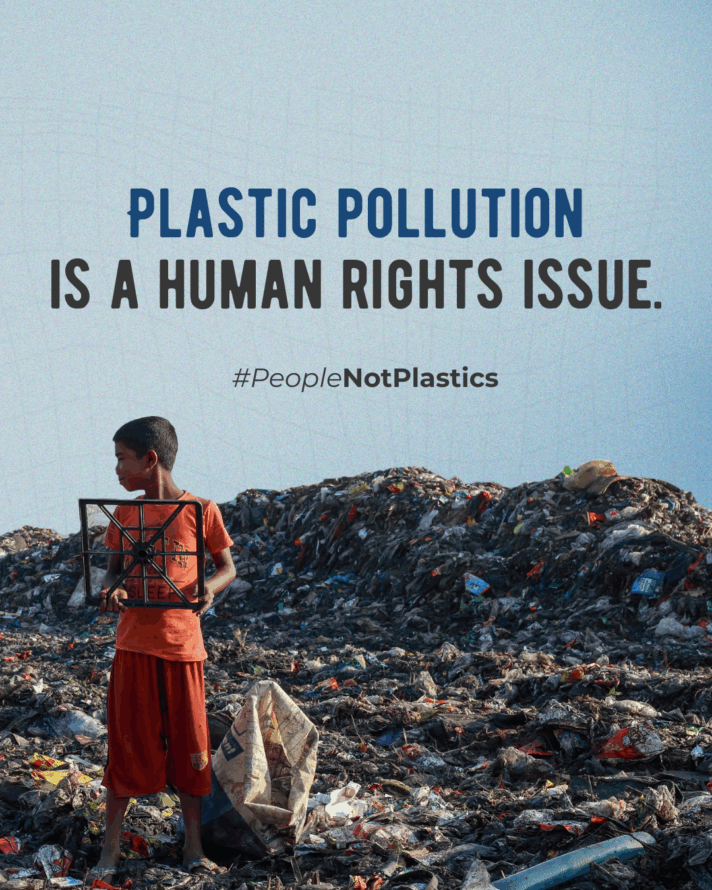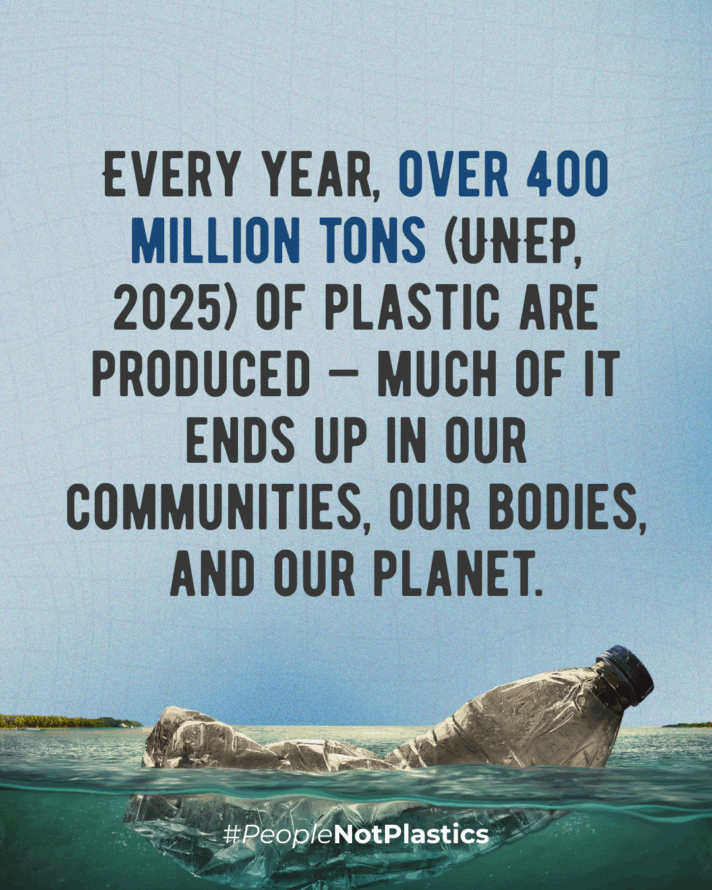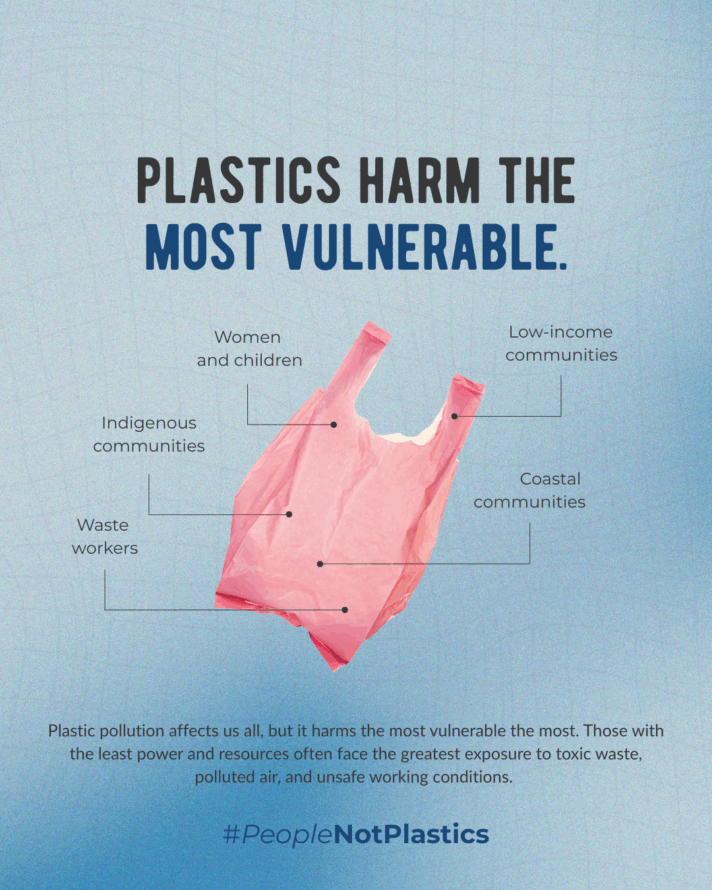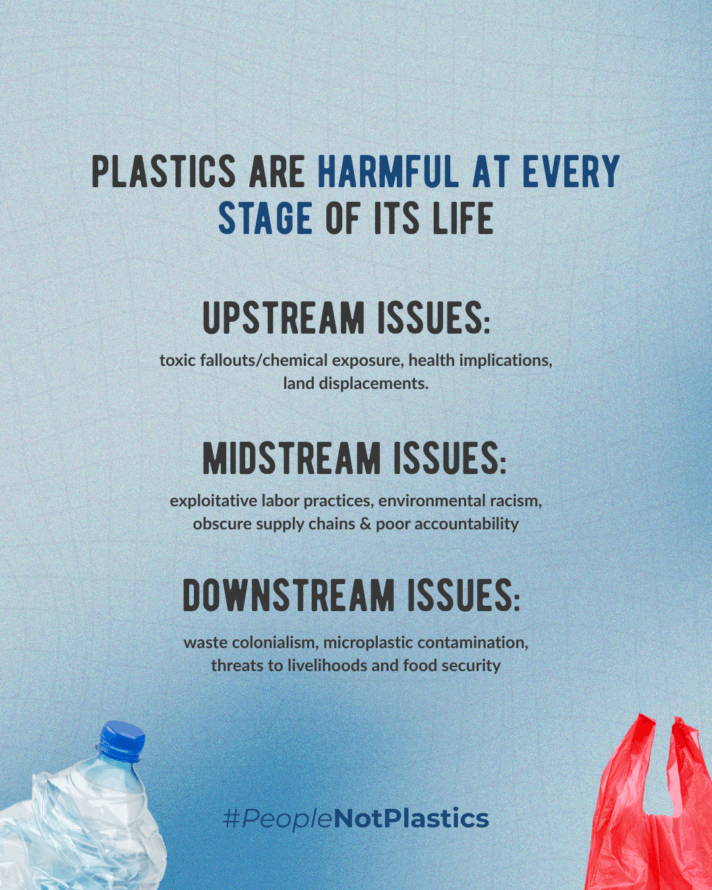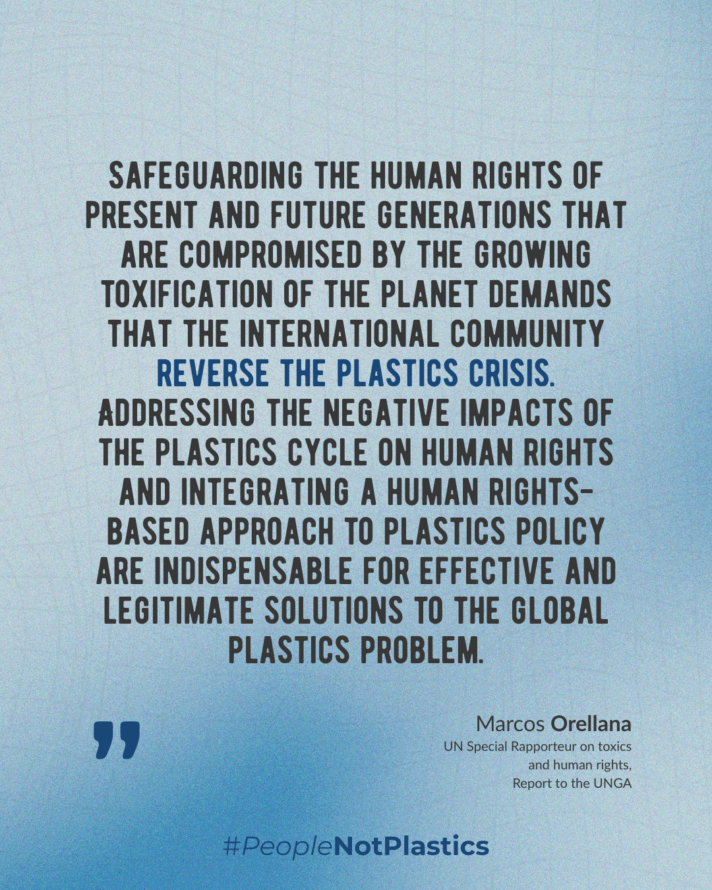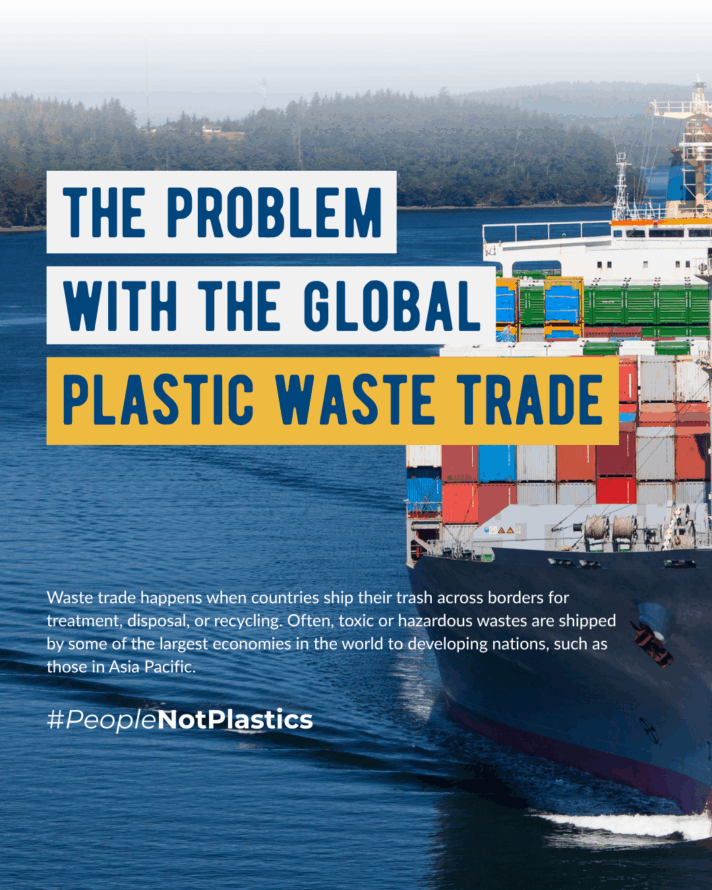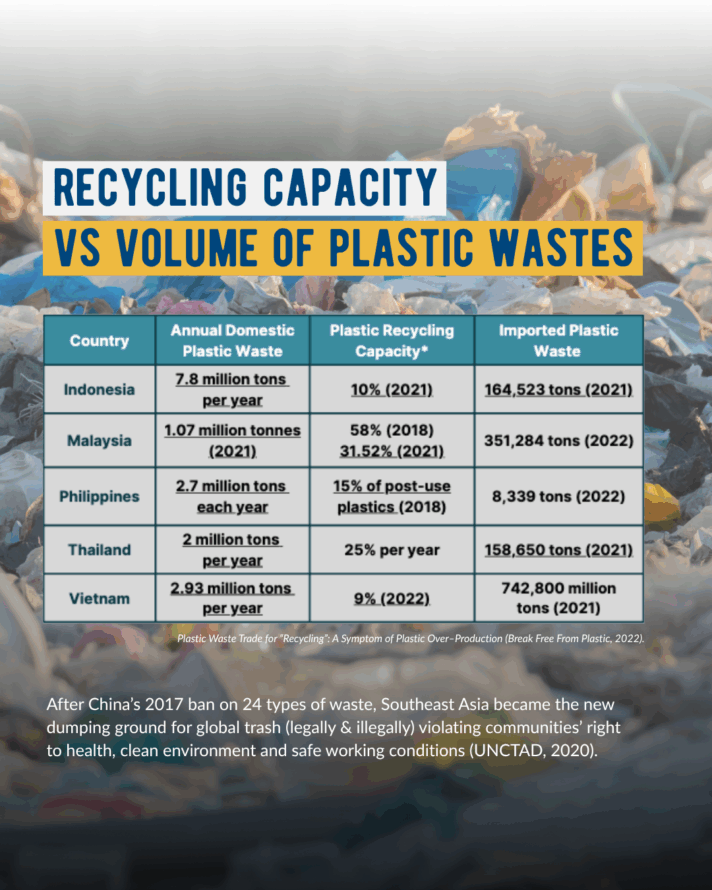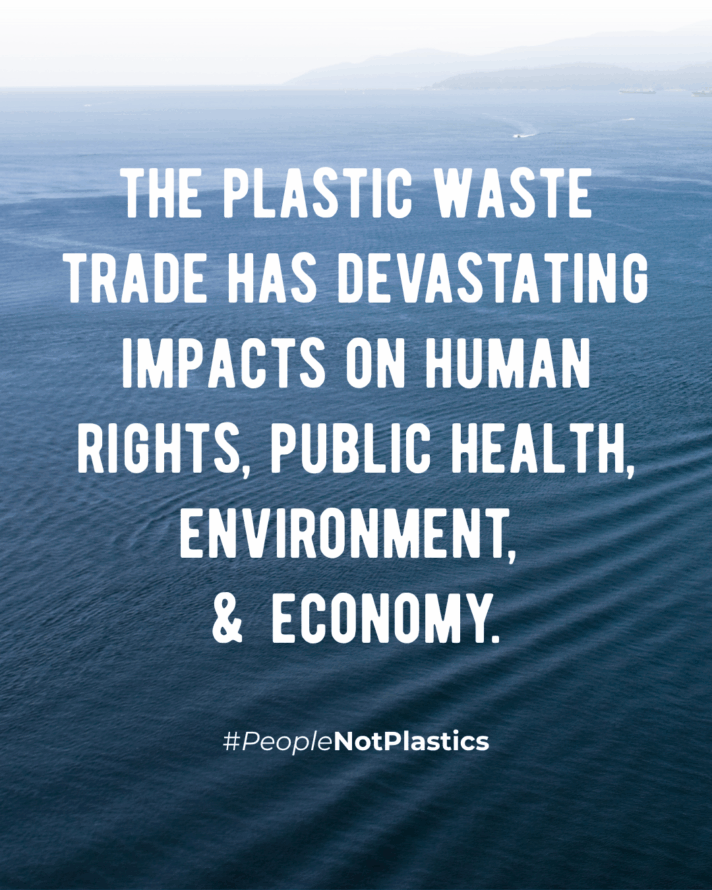
#PeopleNotPlastics—Plastic Pollution is a Human Rights Issue
July 03, 2025
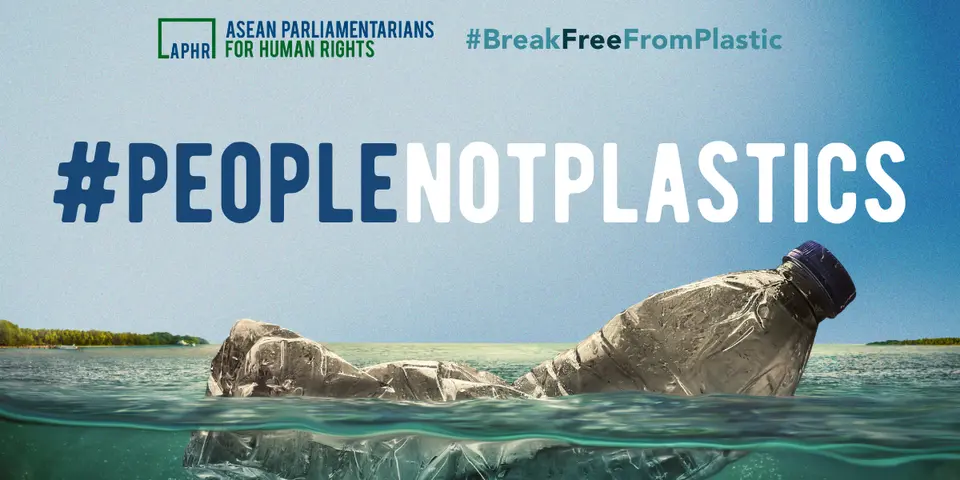
The global plastic crisis represents one of the most pressing human rights challenges of our time, affecting communities across the entire lifecycle of plastic production, use, and disposal. From extraction sites to waste dumps, plastic-related activities systematically violate fundamental human rights.
Plastic pollution is not just an environmental issue. It is a social justice issue intertwined with inequalities based on race, class, gender and geographic locations. Only by acknowledging these intersections can we create and advocate for equitable and sustainable solutions that make a truly positive impact.
As part of the #PeopleNotPlastics campaign, this new publication lays out why plastic pollution is a human rights issue. From toxic production sites to overflowing landfills and plastic-choked waterways, plastic harms people long before and after it becomes waste.
Across the globe, a hidden economy thrives: the export of plastic waste from high-income countries to less wealthy, often less-regulated nations. Branded as recycling, this trade offloads environmental costs onto communities in the Global South, where waste is burned, buried, or abandoned with devastating consequences. Since the late 1980s, hundreds of millions of tonnes of plastic waste have been shipped abroad—out of sight, out of mind.
But the damage is real. This practice entrenches a system of global environmental inequality, where poorer nations absorb the toxic fallout of consumerism elsewhere. If the international community is serious about addressing plastic pollution at its roots, it must confront and dismantle the waste trade that fuels it.
The plastic crisis represents a fundamental challenge to human rights protection and environmental justice. Addressing this crisis requires comprehensive policy responses that acknowledge the interconnected nature of plastic-related harms and prioritize the rights and well-being of affected communities.
Parliamentarians have crucial roles to play in developing and implementing these solutions. By understanding the full scope of plastic’s human rights impacts and taking decisive action across the entire plastic lifecycle, governments can protect vulnerable communities, prevent future harm, and build more just and sustainable societies.
The urgency of this crisis cannot be overstated. Every day of delay means continued violations of fundamental human rights and increased suffering for millions of people worldwide. The time for action is now.
ASEAN Parliamentarians for Human Rights (APHR) was founded in June 2013 with the objective of promoting democracy and human rights across Southeast Asia. Our founding members include many of the region's most progressive Members of Parliament (MPs), with a proven track record of human rights advocacy work.

